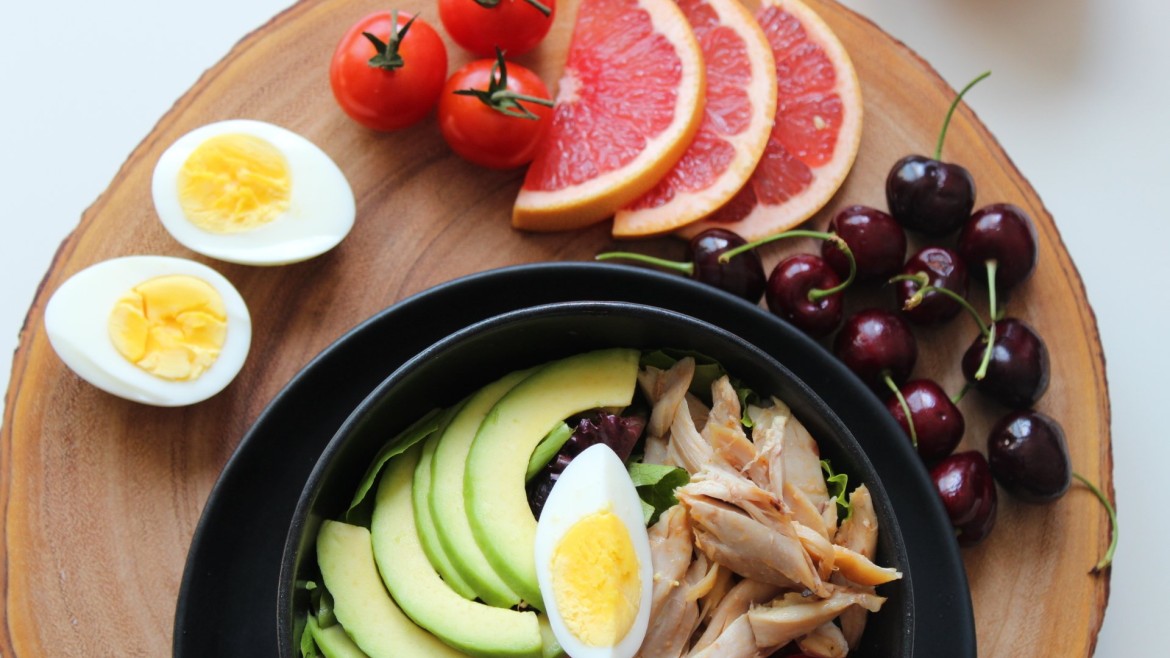
Introduction
Hormonal imbalance can affect anyone, leading to issues such as weight gain, mood swings, fatigue, irregular sleep patterns, and skin problems. A well-balanced diet plays a crucial role in restoring hormonal balance naturally. Consuming nutrient-dense foods can help regulate key hormones like insulin, estrogen, testosterone, and cortisol, supporting overall well-being. In this article, we explore the best foods to help correct hormonal imbalances and promote optimal health for everyone.
Best Foods for Hormonal Balance
1. Healthy Fats
Healthy fats are essential for hormone production and regulation.
- Avocados: Rich in monounsaturated fats that support adrenal health and reduce cortisol levels.
- Olive oil: Contains anti-inflammatory properties that improve hormone function.
- Coconut oil: Supports thyroid health and metabolism.
- Nuts & Seeds: Almonds, walnuts, flaxseeds, and chia seeds provide essential omega-3 and omega-6 fatty acids.
2. High-Fiber Foods
Fiber helps remove excess hormones from the body and supports gut health.
- Leafy Greens: Spinach, kale, and Swiss chard help detoxify estrogen.
- Legumes: Lentils and chickpeas provide fiber and plant-based protein.
- Whole Grains: Quinoa, brown rice, and oats regulate blood sugar levels.
3. Protein-Rich Foods
Protein is vital for hormone synthesis and maintaining stable energy levels.
- Eggs: Contain choline and vitamin D, essential for hormone production.
- Fatty Fish: Salmon, sardines, and mackerel provide omega-3s that reduce inflammation.
- Lean Meats: Chicken and turkey supply high-quality protein for hormone regulation.
4. Fruits for Hormonal Balance
Fruits contain essential vitamins, minerals, and antioxidants to support hormone function.
- Berries: Blueberries, raspberries, and strawberries reduce oxidative stress.
- Bananas: High in vitamin B6, which stabilizes mood-related hormones.
- Pomegranates: Help regulate estrogen and testosterone levels.
- Citrus Fruits: Oranges and lemons support adrenal function and detoxify excess estrogen.
5. Cruciferous Vegetables
Cruciferous vegetables help balance estrogen and support liver detoxification.
- Broccoli: Contains indole-3-carbinol, which helps regulate estrogen metabolism.
- Cauliflower: Aids in hormonal detoxification.
- Brussels Sprouts: Rich in fiber and antioxidants that support hormonal balance.
6. Fermented Foods
Probiotics improve gut health, which plays a key role in hormone regulation.
- Yogurt: Provides probiotics that support digestion and hormone function.
- Kimchi & Sauerkraut: Aid in gut microbiome balance.
- Kefir: A fermented dairy product that supports gut health and digestion.
7. Hydrating Foods & Beverages
Hydration is essential for hormone function and detoxification.
- Water: Helps flush out toxins and supports metabolic processes.
- Herbal Teas: Green tea and chamomile tea reduce stress and improve digestion.
- Coconut Water: Replenishes electrolytes and supports adrenal health.
Foods to Avoid for Hormonal Imbalance
Some foods can disrupt hormone levels and should be consumed in moderation.
- Processed Foods: Contain artificial additives that may interfere with hormone function.
- Refined Sugar: Causes insulin spikes and disrupts blood sugar regulation.
- Excess Caffeine: May increase cortisol levels and disrupt sleep patterns.
- Alcohol: Affects liver function, making it harder to detoxify excess hormones.
How to Implement a Hormone-Balancing Diet
- Eat Whole Foods: Prioritize fresh, unprocessed foods for optimal nutrition.
- Incorporate Variety: Include different fruits, vegetables, proteins, and healthy fats.
- Stay Hydrated: Drink plenty of water and herbal teas to support digestion and detoxification.
- Manage Stress: Reduce cortisol levels through meditation, exercise, and proper sleep.
Conclusion
A hormone-balancing diet is key to improving overall health and reducing symptoms of hormonal imbalance. By consuming healthy fats, fiber-rich foods, lean proteins, and antioxidant-packed fruits and vegetables, you can naturally regulate hormone levels. Additionally, avoiding processed foods, refined sugars, and excessive caffeine can further promote hormonal health. A well-rounded diet, combined with a healthy lifestyle, can help maintain hormonal balance and improve well-being. If symptoms persist, consult a healthcare provider for personalized advice.

